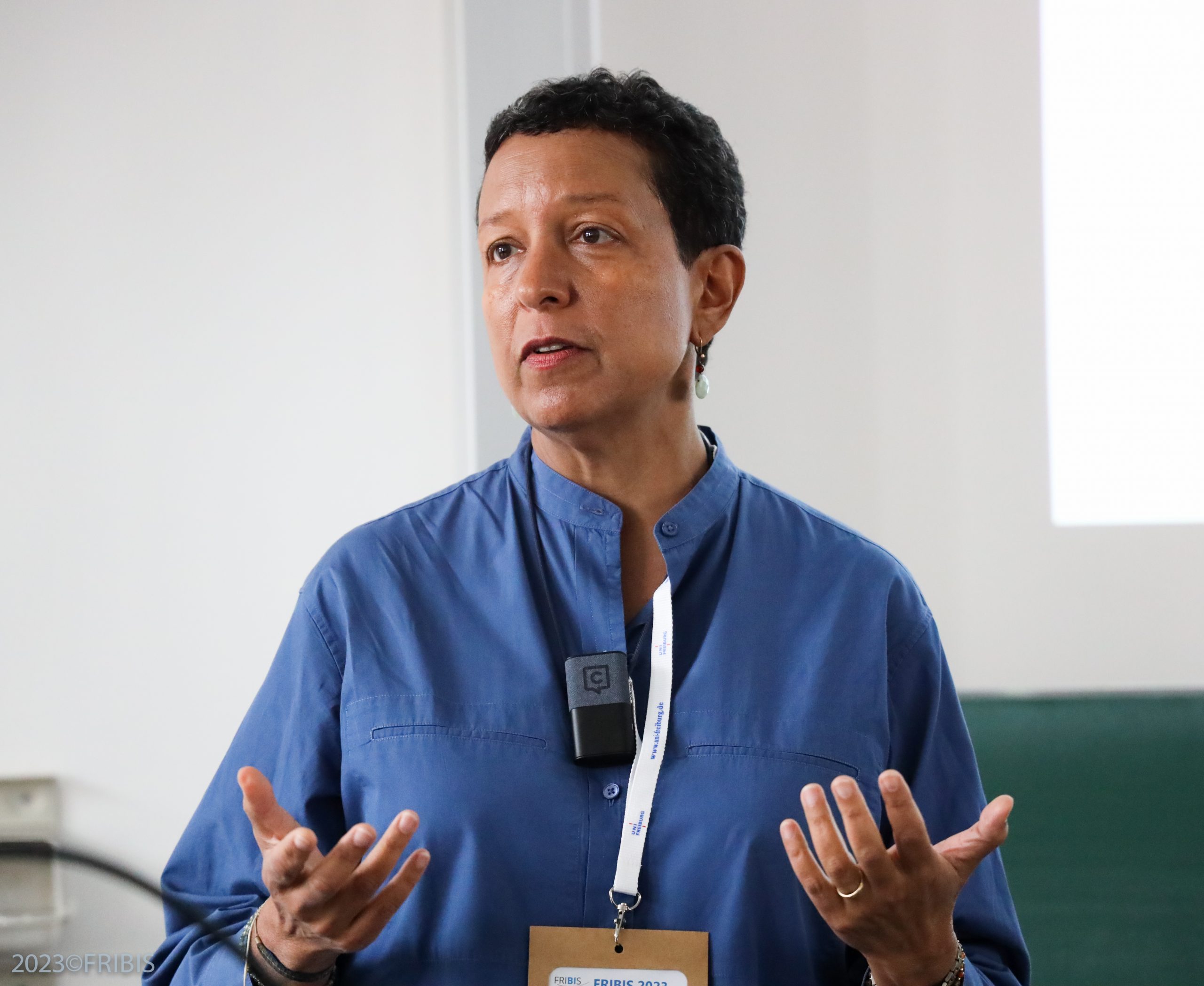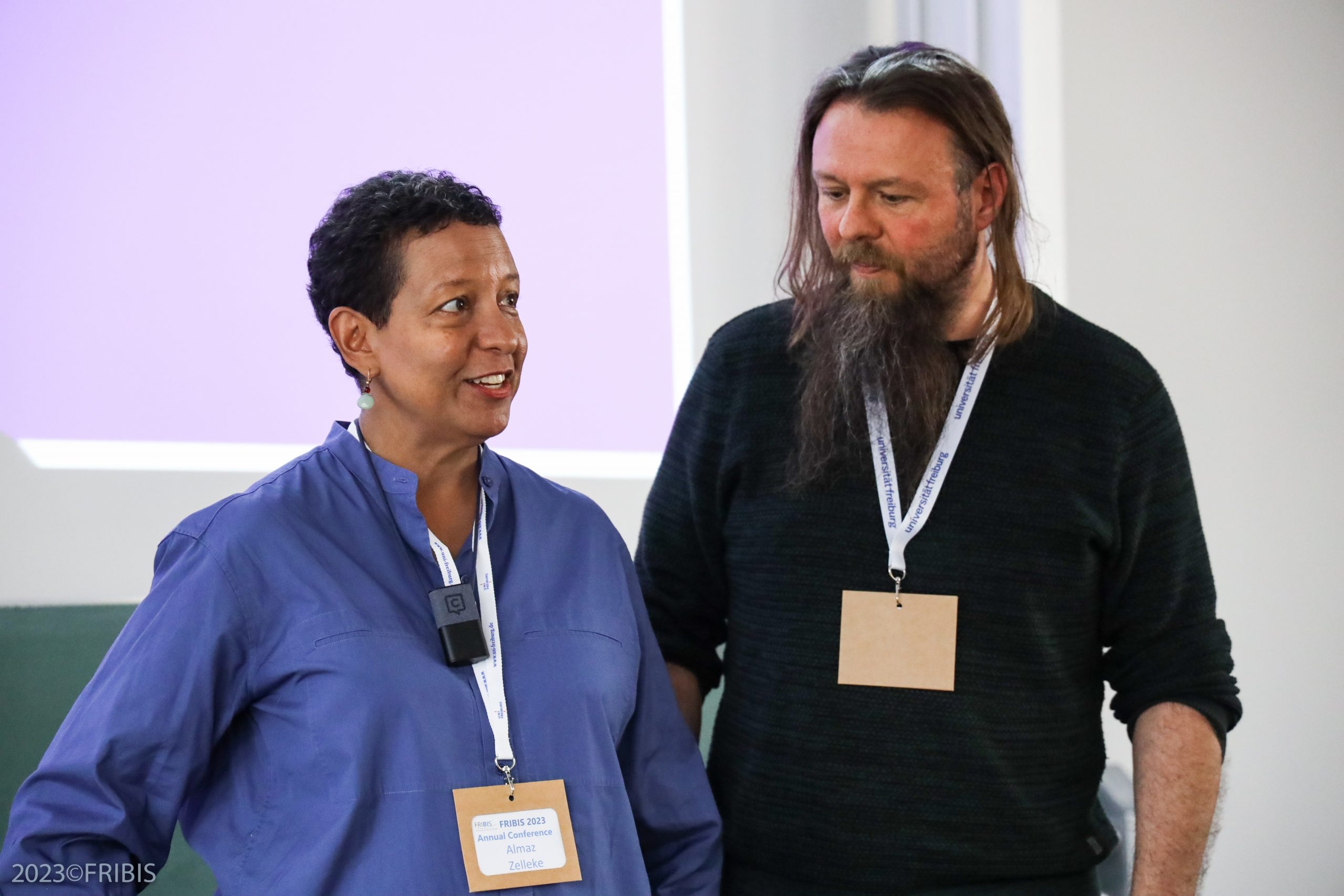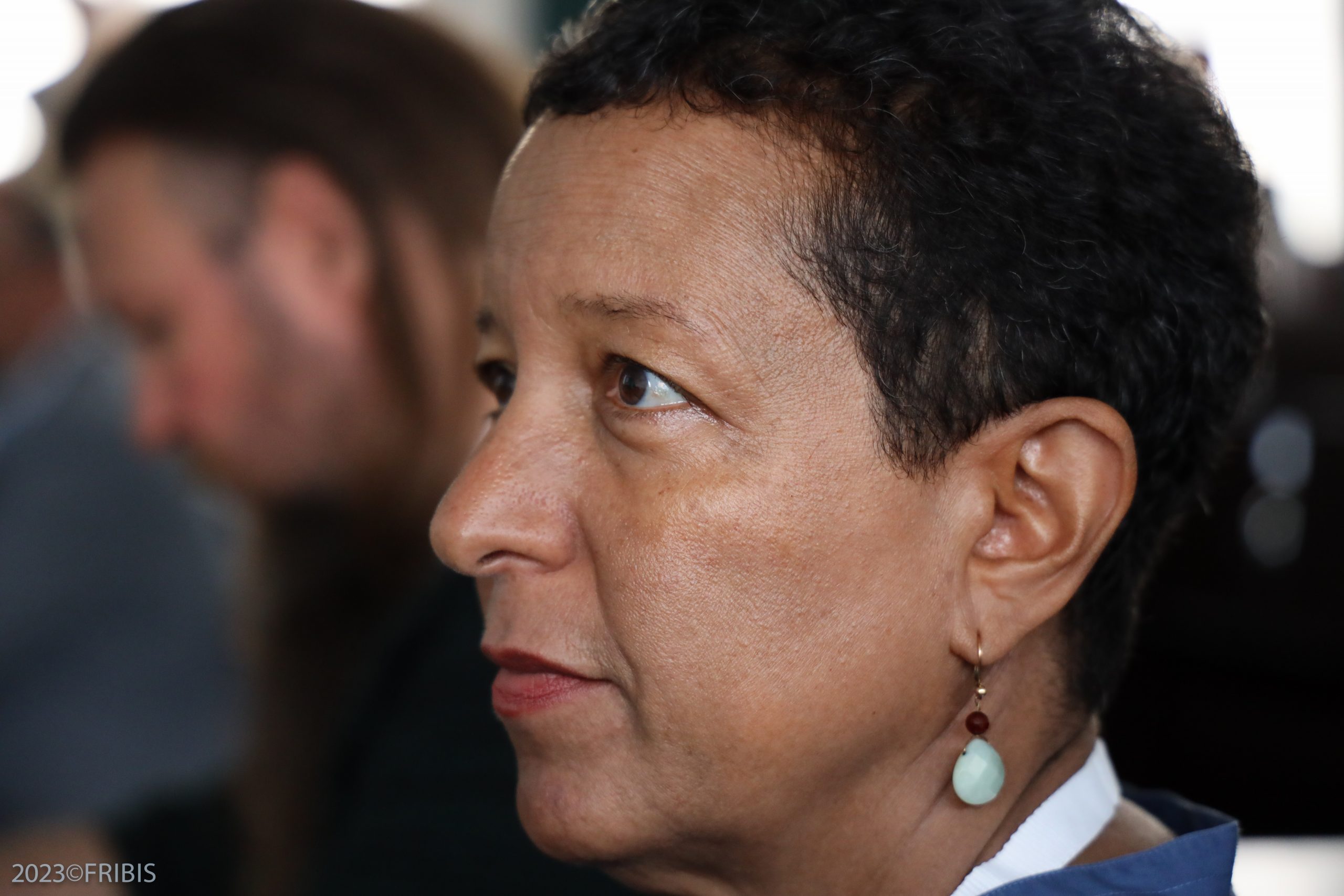The 3rd annual FRIBIS conference was held in Freiburg from October 9 to 11, 2023. It focused on two often overlooked aspects in the universal basic income (UBI) debate, namely, gender and care as central dimensions of social coexistence. The conference aimed to explore the potentials and challenges UBI offers for care work and gender-related issues, such as gender roles and equality. A key emphasis was placed on understanding the interplay between care and gender within the context of UBI. This event was organized by the FRIBIS teams care and UBIG (UBI & Gender).
UBI as a solution for care gaps? New perspectives and challenges
It is becoming increasingly clear, especially in Europe, that care work is one of the fundamental prerequisites for a functioning society. In view of increasing life expectancy and falling birth rates, we are confronted with the fact that the need for care will increase significantly in the future. Accordingly, the conference focused on formal and informal care work as well as the phenomenon of “care gaps”: gaps in care or welfare that arise when the need for care and nursing services (such as childcare, care for the elderly or the sick) exceeds the available capacity. The participants discussed the personal and institutional framework conditions necessary to close care gaps and the role a UBI could play in this.
We asked Prof. Klaus Baumann, a member of the care research team, about his impressions as a conference participant.
How did the conference influence your perspective on the topics of care/gender/UBI?
The numerous international contributions on care and gender with regard to the potential of a UBI made it clear how important both topics are; not surprisingly, they overlap time and again. The conference gave me and our care team a lot of encouragement: research is needed, the development of perspectives and their communication in academia, civil society and politics is becoming an increasingly urgent task, not through polarisation and over-simplification but through sustainable arguments and serious narratives.

Klaus Baumann
How did you benefit from taking part in the conference?
The conference was of great benefit in terms of exchanging ideas and questions, learning from each other and, in particular, for the diverse encounters and opportunities to get to know each other personally. It was very pleasing to see the willingness of international and German-speaking contributors from academia and civil society cooperating with our FRIBIS care team. We will provide more details once these initial discussions turn into firm commitments.

Bianca Blum, Christine Rudolf, Klaus Baumann
What new ideas or collaborations have emerged?
One new idea was to introduce the term “care ecology” to the Care Panel discussion, a concept that we will continue to develop and expand. After all, our common “house” (oikos) that we inhabit – the planet – can only be protected with thoughtful “care” for the current challenges and sustainably preserved as a life-friendly world for future generations. This will also include making a qualified contribution to the potential of the UBI. The approach will also encompass making a substantial contribution to understanding the potential of Universal Basic Income in this context.

Bianca Blum, Klaus Baumann, Ronald Blaschke
Gender and basic income: Intersectional perspectives at the annual conference
The gender part of the annual conference was characterized by intersectional-feminist perspectives Universal Basic Income. Among other things, the focus was on how the UBI could influence traditional roles in the world of work (production) as well as the private sphere, such as family work and raising children (reproduction). Feminist perspectives, which have been neglected to date, were given greater prominence. Ben Trott’s exciting keynote shed light on basic income from a queer perspective, while Almaz Zelleke’s keynote impressively showed how varying social and control systems shape different genders in different ways. The other presentations also encouraged participants to think about the role of a basic income in a possible social reorganisation based on feminist considerations of the economy and politics.
We asked keynote speaker Prof. Almaz Zelleke about the impressions the annual conference left on her.
My two-week stay in Freiburg began with the third annual FRIBIS conference—the first basic income conference, to my knowledge—with a thematic focus on gender and care. It was energising to attend session after session in which these issues, and their connection to basic income, were prioritised. The experience led a few of us to create a Gender and Basic Income network to collaborate on future conference panels and presentations, research, and publications. In this way I expect the conference’s thematic focus to have far-reaching implications for basic income research and activism into the future.
It was another new experience for me to be in a space like FRIBIS, where there are so many researchers working on basic income in close proximity. I spent time with Professor Neumärker and the doctoral students there, learning about the different projects they’re involved in and the range of methodological approaches being used. I was particularly intrigued by the ordoliberal/contractarian approach being taken in a number of lab experiments to determine the agreements citizens are likely to make on a range of issues related to distribution, redistribution, and basic income.
Beyond the formal conversations in the conference, workshops, and research presentations, perhaps my favourite part of the trip was participating in an informal “Basic Income, Bier, and Bratwurst” conversation on the relationship between basic income and work. This is a great FRIBIS tradition, and one I look forward to participating in again when I am next in Freiburg.

Almaz Zelleke

Almaz Zelleke, Jurgen De Wispelaere

Conclusion
The FRIBIS Annual Conference 2023 was an excellent opportunity for international participants to engage in an interdisciplinary exchange on care and gender in the context of the UBI. The future collaborations that are being established will undoubtedly help to anchor the topics of care and gender more firmly in the basic income discourse. We would like to thank all participants for their enriching contributions and look forward to continuing the discussions in the coming year.

